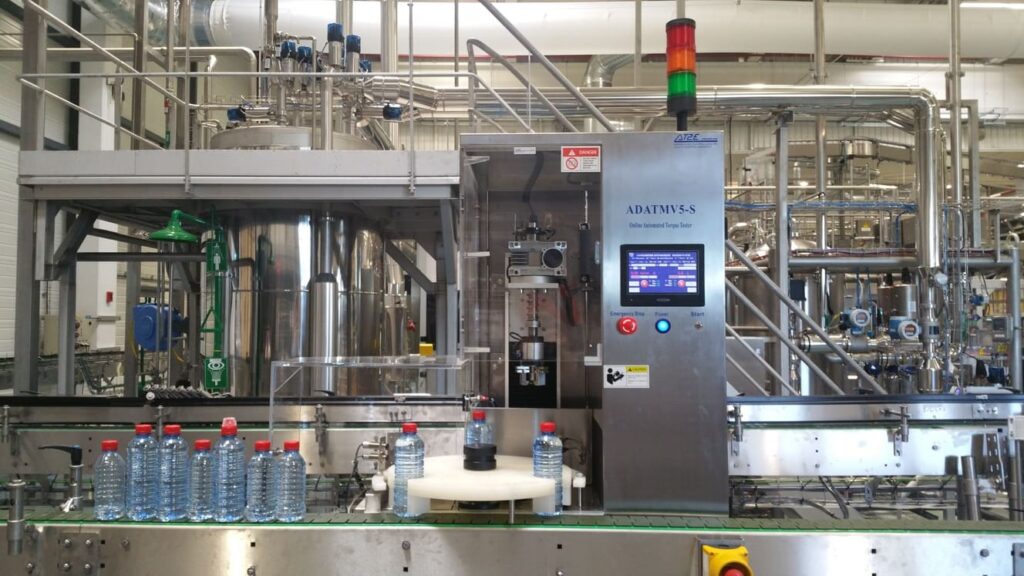Introduction
In the fast-paced world of manufacturing, maintaining high efficiency and quality control is paramount. One critical aspect that plays a significant role in achieving these goals is real-time torque measurement. Real-time torque measurement provides immediate feedback on torque values, allowing for instant adjustments and ensuring that every product meets the required specifications. In this article, we will explore how real-time torque measurement enhances production line efficiency, the advantages of using automated torque testers, and the impact they have on overall production quality.
Understanding the importance of real-time torque measurement can transform your production processes. With the ability to monitor and adjust torque in real time, manufacturers can reduce waste, improve product consistency, and minimize downtime. This article will delve into the specifics of torque testers, highlighting their benefits and how they contribute to a more efficient production line. Stay with us as we unpack the key aspects of this crucial technology and its applications in modern manufacturing.
The Role of Real-Time Torque Measurement in Manufacturing
Ensuring Precision and Accuracy
Real-time torque measurement is essential for ensuring precision and accuracy in the manufacturing process. By continuously monitoring torque, manufacturers can detect any deviations from the set parameters immediately. This capability is particularly vital in industries where precise torque application is crucial, such as automotive and aerospace.
Benefits of Accurate Torque Measurement
- Improved Product Quality: Consistent torque application ensures that all components are assembled correctly, leading to higher product quality.
- Reduced Waste: Early detection of torque deviations allows for quick corrections, minimizing material waste.
- Enhanced Safety: Properly torqued components reduce the risk of failures and accidents.
Enhancing Production Line Efficiency
Automated torque testers provide real-time data that is crucial for maintaining a smooth production line. This technology helps in identifying and addressing issues promptly, reducing downtime and increasing overall efficiency.
Key Features of Automated Torque Testers
- Real-Time Monitoring: Continuous torque data collection and analysis help in maintaining optimal production conditions.
- Automated Adjustments: Integration with production systems allows for automatic adjustments based on torque data.
- Data Logging: Comprehensive data logging capabilities support quality control and traceability.
Case Study: ADATMV5-S Torque Tester
The ADATMV5-S Automated Torque Tester from AT2E is an exemplary product that showcases the benefits of real-time torque measurement. This advanced torque tester is designed to provide accurate and reliable torque data, ensuring that your production line operates at peak efficiency.
Advantages of Using Real-Time Torque Measurement
Improved Process Control
Real-time torque measurement allows for better control over the manufacturing process. By having instant access to torque data, manufacturers can make informed decisions quickly, ensuring that production remains on track.
Impact on Production Control
- Consistency: Real-time adjustments help maintain product consistency, essential for brand reputation.
- Speed: Faster identification and correction of issues lead to higher production speeds.
- Cost Savings: Reduced downtime and waste translate into significant cost savings.
Enhancing Quality Assurance
Quality assurance is greatly enhanced with real-time torque measurement. Automated torque testers provide detailed insights into torque application, enabling thorough quality checks and reducing the risk of defects.
Quality Assurance Benefits
- Comprehensive Testing: Automated systems can perform extensive tests, ensuring every product meets quality standards.
- Traceability: Detailed records of torque measurements support traceability and compliance with industry regulations.
- Customer Satisfaction: Higher quality products result in greater customer satisfaction and loyalty.
Implementing Automated Torque Testers in Your Production Line
Integration with Existing Systems
Integrating automated torque testers into your existing production line can be seamless. These devices are designed to work with various manufacturing systems, providing real-time data and control capabilities.
Steps for Integration
- Assessment: Evaluate your current production setup and identify areas where torque measurement can improve efficiency.
- Selection: Choose a torque tester that meets your specific needs, such as the ADATMV5-S.
- Implementation: Integrate the torque tester into your production line, ensuring proper configuration and calibration.
Training and Support
Proper training and support are crucial for maximizing the benefits of automated torque testers. Ensure your team is well-versed in using these devices and interpreting the data they provide.
Key Training Aspects
- Device Operation: Training on how to operate and maintain the torque tester.
- Data Interpretation: Understanding torque data and making informed adjustments.
- Continuous Improvement: Using torque data for ongoing process improvements.
Conclusion
Real-time torque measurement is a game-changer for manufacturing efficiency and quality control. By leveraging advanced automated torque testers like the ADATMV5-S, manufacturers can ensure precise torque application, enhance production line efficiency, and improve overall product quality. Investing in this technology not only boosts productivity but also leads to significant cost savings and customer satisfaction.
FAQs
1. What is real-time torque measurement?
Real-time torque measurement involves continuously monitoring torque values during the manufacturing process to ensure precise and consistent application.
2. How does real-time torque measurement improve production line efficiency?
It allows for immediate detection and correction of torque deviations, reducing downtime and waste while ensuring product quality.
3. What are the benefits of using automated torque testers?
Automated torque testers provide real-time data, enable automated adjustments, and support comprehensive data logging for quality control and traceability.
4. Can automated torque testers be integrated into existing production lines?
Yes, automated torque testers are designed to integrate seamlessly with various manufacturing systems, providing real-time monitoring and control.
5. Why is quality assurance important in torque measurement?
Quality assurance ensures that all products meet industry standards and specifications, reducing the risk of defects and enhancing customer satisfaction.
By incorporating real-time torque measurement into your production processes, you can achieve greater efficiency, higher quality, and significant cost savings. Visit AT2E to learn more about their innovative torque testing solutions.

